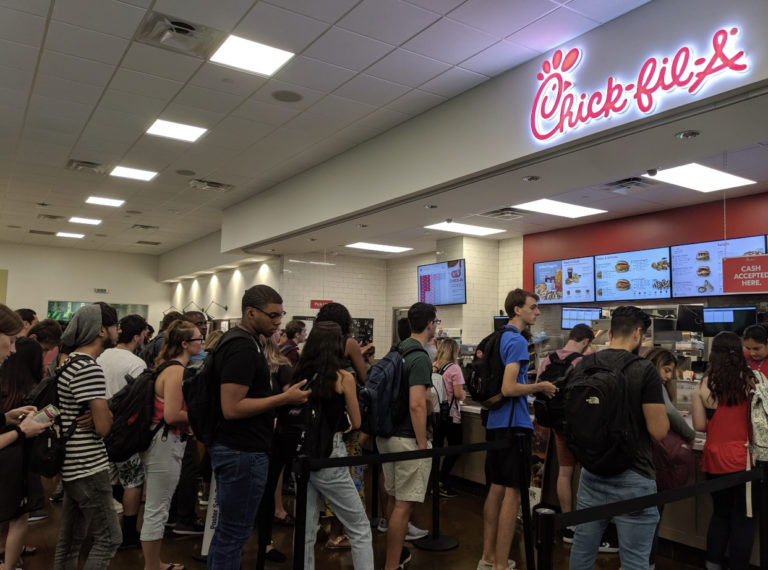International students offer insight on financial struggles with on-campus jobs

For sophomore civil engineering major Syad Ameer Mahmoud Shah, working at USF as an international student was more than just a financial opportunity – it was a necessity to secure his citizenship.
Having moved from Pakistan to attend college in the U.S., Shah said he knew he needed to find a job on campus to fulfill the requirements of his F-1 visa, which requires international students to find campus jobs that employ them for a maximum of 20 hours a week.
Despite working for USF’s hospitality department for close to a year, Shah said he only recently received his first promotion, increasing his pay from his starting pay of $12 an hour to $15. However, affording basic necessities such as groceries, rent and other everyday costs still remains a constant struggle regardless of his raise, according to Shah.
Florida’s minimum wage increased from $10 to $11 as part of the state’s plan to increase the minimum wage to $15 an hour by 2026, according to the Labor Law Center. However, despite requiring an upwards of $2,270 a month to afford basic living expenses, a majority of college students report earning less than $15 an hour at their current on-campus jobs, according to The Hill.
In addition to his regular expenses for living costs, Shah said inflation has massively impacted not only the cost of living, but his fear for future job prospects. The price increases he has noticed during his regular visits to the grocery store to purchase food for the week are things Shah said has brought the prospect of the economy potentially entering a recession into perspective.
“Looking at the diverse and massive international community at USF, I absolutely think having the minimum wage of students increase equitably with other employees should be an option. On the visa, you’re already restricted to working solely on campus and $12 an hour doesn’t pay the bills,” he said.
“I earn $15 an hour, and even then I feel like there’s an issue. At this point I don’t even order food and decide to cook at home and even with all of that stuff, if there’s a sudden expense, it kind of puts me back a couple of weeks. I used to have to ask for assistance from my home so when hearing about people making $11 a month, I genuinely can’t imagine how people are paying their bills.”
His raise in pay was also accompanied with a multitude of increased job responsibilities, according to Shah. As the only undergraduate student working for the hospitality department, Shah said his marketing job has expanded from advertising courses offered by the department to arranging various events and meetings to stimulate student engagement.
Senior political science major María José Pereira said at her current rate of pay, affording a life outside of rent and groceries has been a struggle after money is taken away for taxes. Although she is paid above minimum wage, or $14.25 an hour, she said herself and many other international students lack the financial stability required to afford the standard of living in the U.S.
Moving from Colombia to Tampa to attend college, it took multiple applications to secure a job despite it being a requirement of her F-1 visa, according to Pereira. Having observed the way in which food service workers were treated at campus dining places such as Starbucks and Chick-Fil-A, she said she was relieved when the library offered her a position in their Special Collections department.
Attending college in the United States requires that an international student not only receives an F-1 visa, but is able to provide proof of funding for the cost of a semester, according to Pereira. For many student employees relying on an F-1 visa, she said the $21,000 proof of funds required to attend USF creates an unfair assumption that international students are not supposed to struggle financially.
Increasing student employees’ salaries to equitably match their efforts requires that people hold USF accountable, according to Pereira. Although she does not intend to complain as she has a better paying job compared to others on campus, Pereira said the first step toward change should be that the university pays student employees equally for their efforts.
“I do think there’s some responsibility in paying the people that work fairly, especially those that work in customer service. I cannot understand why these jobs are so underpaid, and the idea of only receiving $10.25 to $11 an hour for the work [food service] people do is hard to imagine,” she said.
“The minimum [USF] should do is keep up with minimum wage. If they want to go above and beyond, like ‘okay, we’ll put it at $12 an hour so wages can be more,’ then that would benefit students. But there should be no loopholes to try, in a way, to cheat those students out of what they really deserve.”







